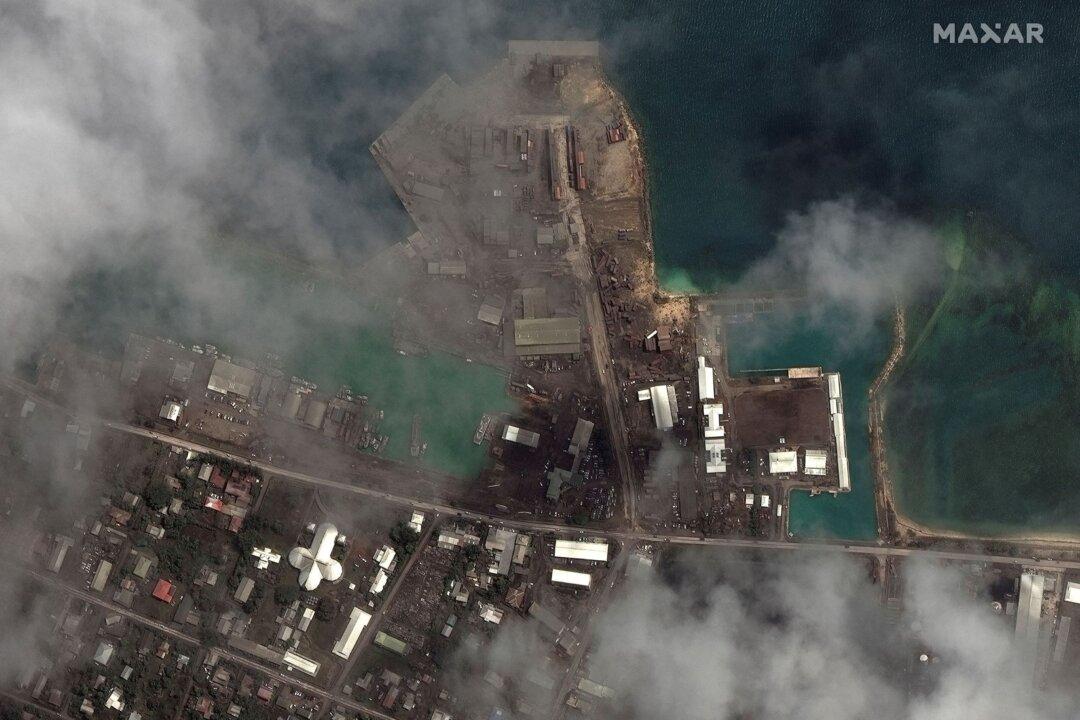Entire villages on one of Tonga’s small outer islands have been wiped out by the tsunami that followed Saturday’s massive volcanic eruption, which killed at least three people, the Tongan government said on Tuesday in its first update since the tragedy struck.
The three known fatalities from the tsunami are a 65-year-old woman on Mango Island, a 49-year-old man on Nomuka island, and a 50-year-old Briton identified as Angela Glover on Tongatapu Tonga’s main island, whose body was found on Monday. Glover was reported missing after being swept away by the tsunami while attempting to rescue her dogs.





